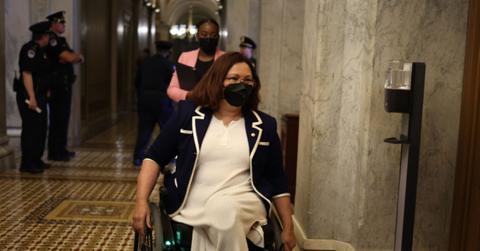Do Disabled Veterans Pay Property Taxes? Many States Offer Exemptions
Do disabled veterans pay property taxes? Many states offer exemptions, though their amounts and requirements vary.
Oct. 4 2021, Published 11:52 a.m. ET

U.S. veterans, in somewhat of an attempt to reimburse them for their service to our country, are able to make use of various benefits. It’s important that all veterans, in particular those who have become disabled, understand the financial benefits available to them in the U.S.
Property taxes are just one area in which disabled veterans may be eligible for exemptions. Mike Frueh, a former National Director of the VA Home Loan program, says this is a “fantastic benefit” for disabled veterans.
Basics of property taxes
Property tax is a tax based on the assessed value of your property, usually including land and buildings. Owners of property must pay taxes to the local governing body, which then should use the funds for necessary services such as water and sewer, fire protection, law enforcement, education, and more.

To a certain extent, property taxes are tax deductible, although there are caps on the deductions.
How do property tax exemptions work for disabled veterans?
How disabled veterans can take this benefit varies from state to state. If you’re a disabled veteran, you should check the most up-to-date information on your state of residence for details on your benefits and potential exemptions.
According to Militarybenefits.info, “Not all tax exemptions or tax relief applies to all veterans or to all veterans with a disability.” The site explains that in some states, individuals must have a VA-rated disability to qualify, while other states may focus on the disability rather than veteran status.
Some veterans can apply once for the benefit, whereas others must recertify their status annually. In addition, tax laws and exemptions are subject to change.
Examples of disabled veteran tax exemptions
Veteran tax exemptions depend on several factors, including the percentage of disability rating, property value, and the person’s annual income. Some states offer the benefit to surviving family members as well. In Colorado, permanently disabled veterans are exempt from taxation on 50 percent of their first $200,000 in property value.
In Georgia, disabled veterans with qualifying disabilities, including 100 percent VA ratings, may be exempt from up to $60,000 in taxes on a primary residence, and surviving spouses/children are also eligible.
In Illinois, qualifying veterans with a 30 percent VA disability rating are exempt from property taxes, on a sliding scale. At 70 percent disability or higher, veterans are eligible for full property tax exemption.
These few examples show how widely the parameters for property tax exemption may vary from state to state, so be sure to check on your state’s laws regarding eligibility.
Tammy Duckworth's tax details make Fox News headlines
The issue of disabled veterans’ tax obligations is on the public’s mind after a Fox News headline: “Tammy Duckworth hasn’t paid property tax on her Illinois home since 2015”. Many responded in outrage, noting the skewed perception caused by leaving out her property tax exemption due to her disabled veteran status.
Duckworth lost both legs and some arm mobility during her service in the Iraq War, so many citizens responded with support for the Illinois Senator’s right to this financial benefit.
